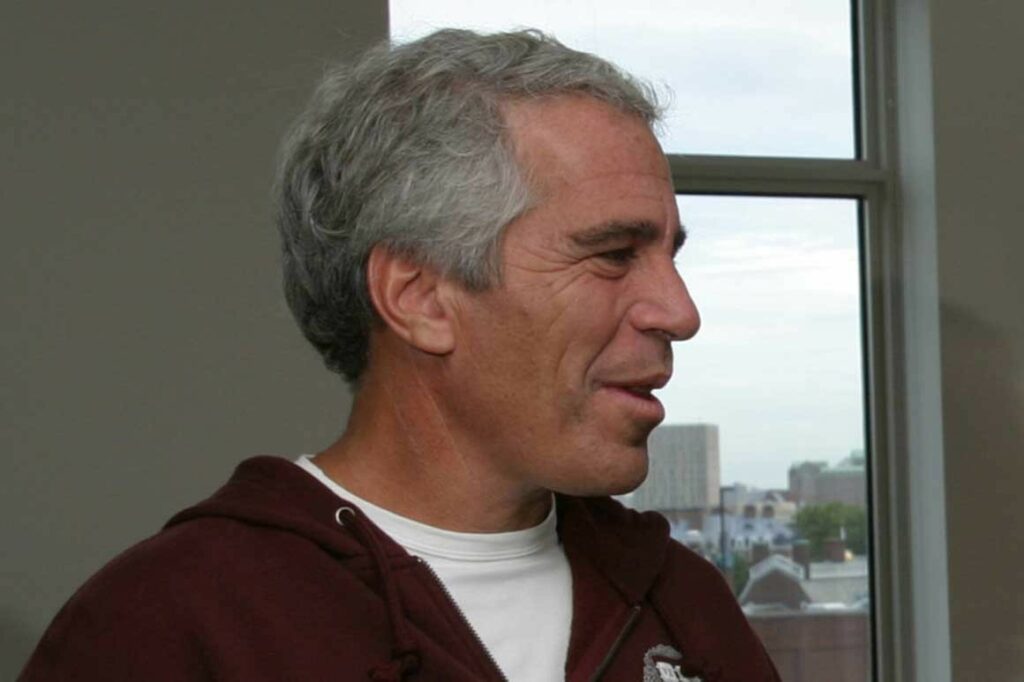
Last month, a federal judge in Florida ruled that federal prosecutors broke the law a decade ago by failing to consult with and misleading victims of Jeffrey Epstein before making a deal that waived any federal charges in exchange for him pleading guilty to two state felony prostitution charges. | Rick Friedman/Corbis via Getty Images
Mystery parties seek secrecy in Jeffrey Epstein-related suit
The two said they could face embarrassment if the court makes public records from the suit, which accused a longtime Epstein friend of engaging in sex trafficking.
Two mystery litigants citing privacy concerns are making a last-ditch bid to keep secret some details in a lawsuit stemming from wealthy financier Jeffrey Epstein’s history of paying underage girls for sex.
Just prior to a court-imposed deadline Tuesday, two anonymous individuals surfaced to object to the unsealing of a key lower-court ruling in the case, as well as various submissions by the parties.
Both people filed their complaints in the New York-based 2nd Circuit Court of Appeals, which is overseeing the case. The two people said they could face unwarranted speculation and embarrassment if the court makes public records from the suit, in which Virginia Giuffre, an alleged Epstein victim, accused longtime Epstein friend Ghislaine Maxwell of engaging in sex trafficking by facilitating his sexual encounters with teenage girls. Maxwell has denied the charges.
“Wholesale unsealing of the Summary Judgment Materials will almost certainly disclose unadjudicated allegations against third persons — allegations that may be the product of false statements or, perhaps, simply mistake, confusion, or failing memories of events alleged to have occurred over a decade and half ago,” former federal prosecutor Nick Lewin wrote in an amicus brief filed Tuesday.
Lewin’s brief doesn’t provide any details about his client — identified in the brief by the pseudonym “John Doe” — beyond saying he “potentially” is mentioned in the underlying court filings and opinion. Lewin, who’s based in Manhattan, declined to comment.
“If the identities of non-parties are not adequately protected, the release of the Summary Judgment Materials in this case would likely cause severe and irreparable harm to a wide variety of non-parties, including those implicated in the conduct and those potentially victimized by it,” the brief says.
The other anonymous brief came from Washington-based attorney Kerrie Campbell, who handles gender equality cases and is affiliated with the Time’s Up movement to combat sexual harassment. Campbell requested that the brief submitted on behalf of a “J. Doe” be put under seal, but said in legal papers that the client is “objecting to public disclosure of specific content pertaining to Doe to protect compelling personal privacy interests.”
Campbell did not immediately respond to a message seeking comment.
Giuffre and Maxwell settled the lawsuit for an undisclosed sum in 2017 after U.S. District Court Judge Robert Sweet turned down Maxwell’s bid to head off a trial. In the lead-up to that ruling, Sweet accepted almost all filings in the case under seal, without specific orders justifying the secrecy.
Three different parties asked Sweet to unseal records in the case: Harvard law professor and former Epstein lawyer Alan Dershowitz — a prominent Trump defender — filmmaker and far-right social media personality Mike Cernovich and the Miami Herald.
Dershowitz said he wanted several records released to disprove and discredit allegations two women have made that they had sex with Dershowitz at Epstein’s direction. Dershowitz has categorically denied the allegations.
Cernovich said the far-ranging secrecy in the case undermined efforts to expose sexual trafficking by American elites.
The Miami Herald sought to open all records in the suit as part of a series on Epstein it was preparing and ultimately published last year.
Sweet turned down all the requests, prompting an appeals to the 2nd Circuit. A three-judge panel there heard arguments on the issue earlier this month and indicated last week that it plans to soon release Sweet’s opinion and related filings. The judges asked any parties in the appeals with specific objections to notify the court by Tuesday.
Maxwell indicated in papers filed by her lawyers Tuesday that she continues to oppose any unsealing. Her attorneys said that if the appeals court believes some unsealing is required, the matter should be returned to Sweet for action, since he is most familiar with the case.
Giuffre is supporting immediate unsealing of some materials in the case and a broader unsealing of all records, but said in a filing Tuesday that some personal information should be held back like names of minors, social security numbers, dates of birth and phone numbers.
“The truth is that Ms. Maxwell and Mr. Epstein sexually trafficked [Giuffre] to their well-connected friends, both in this country and elsewhere,” Giuffre attorneys Paul Cassell and Sigrid McCawley wrote. Unfortunately, critical documents and transcripts proving the truth of Ms. Giuffre’s allegations remain sealed in the vault of the U.S. District Court for the Southern District of New York. It is time for the truth to come out.”
Last month, a federal judge in Florida ruled that federal prosecutors broke the law a decade ago by failing to consult with and misleading victims of Epstein before making a deal that waived any federal charges in exchange for him pleading guilty to two state felony prostitution charges. He ultimately served 13 months of a 19-month sentence, much of it working from his office during the day.
The ruling has been a major headache for Labor Secretary Alex Acosta, who was U.S. Attorney in Miami at the time and approved the plea deal. A Justice Department ethics watchdog has launched an investigation into the episode. Acosta has denied any wrongdoing and has said the deal was a reasonable move by his office in light of the available evidence and other considerations.
___
https://www.politico.com/story/2019/03/20/jeffrey-epstein-related-lawsuit-1229908
